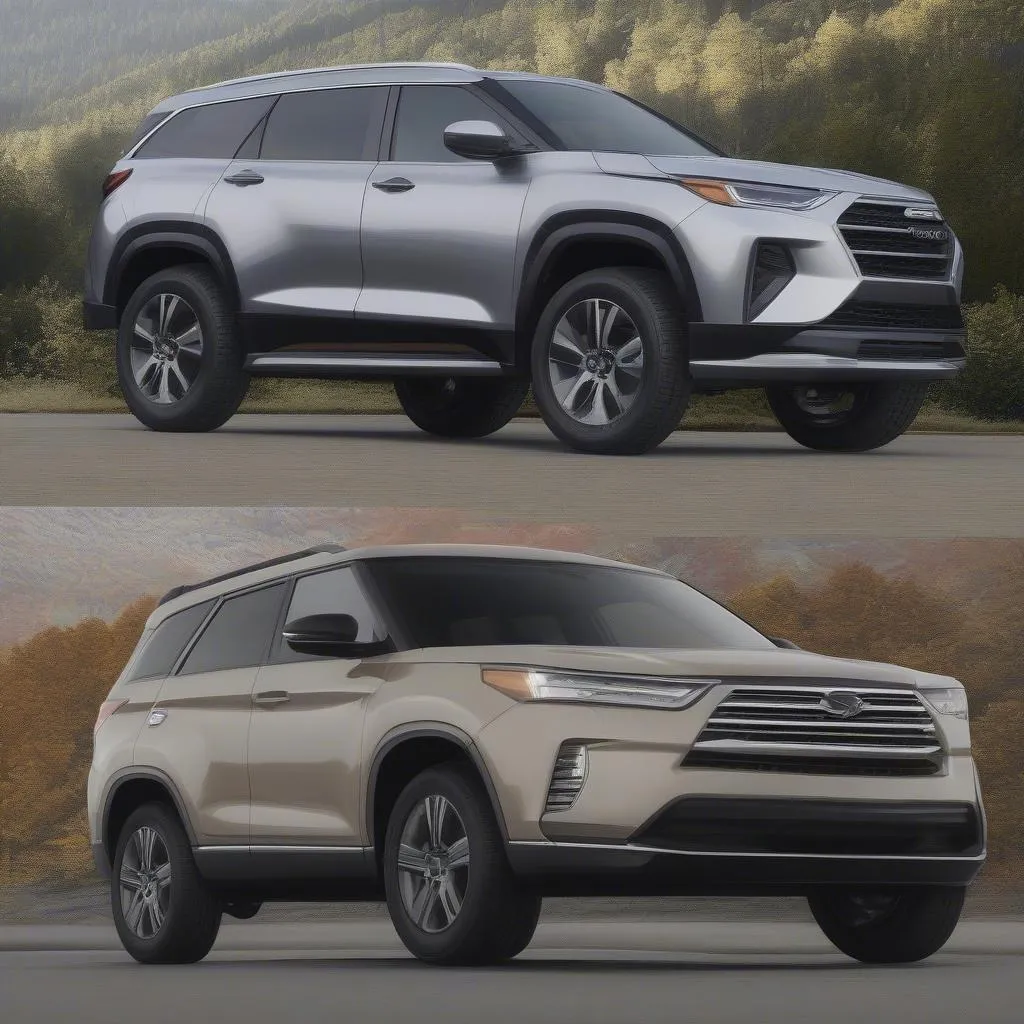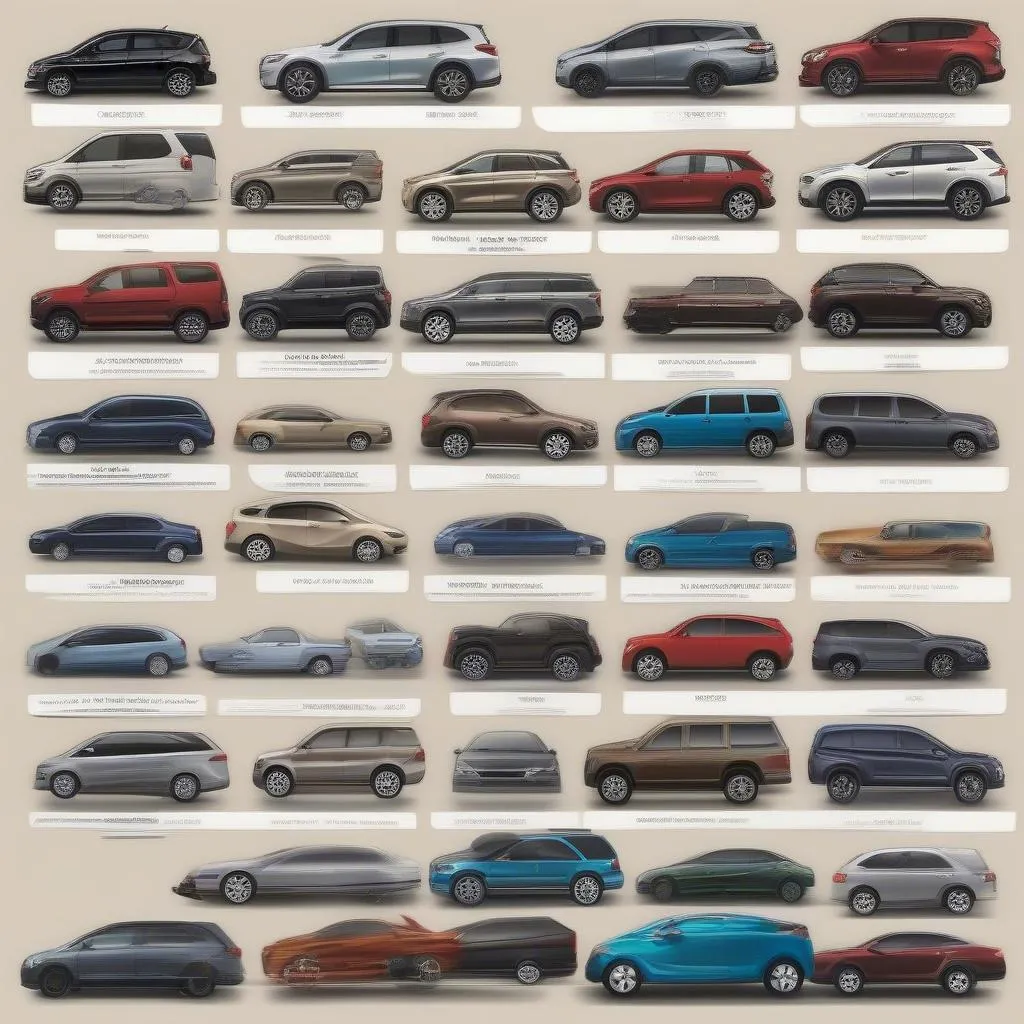Have you ever wondered about the differences between an SUV and a sedan? Or maybe you’ve found yourself standing in a car dealership, overwhelmed by the sheer number of options available? Choosing the right car for your needs can be confusing, especially with so many different types of vehicles available. Today, we’ll dive into the world of car classifications, specifically focusing on SUVs and sedans.
Understanding Car Classifications
Car classifications are used to categorize vehicles based on their size, body style, and intended purpose. These classifications are helpful for consumers, allowing them to narrow down their search and find the perfect vehicle for their lifestyle.
The SUV vs Sedan Dilemma
One of the most common areas of confusion for car buyers is the difference between SUVs and sedans. Both are popular choices, but they cater to distinct needs and preferences. Let’s break down the key differences between these two car classifications:
SUV: Sport Utility Vehicle
SUVs, as the name suggests, are designed for a more “sporty” and “utilitarian” purpose. They are typically larger than sedans, offering increased cargo space and passenger capacity.
Here are some key characteristics of SUVs:
- Higher ground clearance: This makes SUVs ideal for tackling rough terrain and uneven surfaces.
- Four-wheel drive (4WD) or all-wheel drive (AWD): This feature provides enhanced traction and stability in various weather conditions.
- More powerful engines: SUVs often feature larger, more powerful engines to handle their increased weight and off-road capabilities.
- Spacious interior: SUVs typically offer a larger passenger cabin and cargo area compared to sedans.
- Stronger suspension: To handle the rigors of off-roading, SUVs have a more robust suspension system.
Examples of popular SUVs:
- Toyota RAV4: A popular compact SUV known for its reliability and fuel efficiency.
- Ford Explorer: A mid-size SUV offering a spacious interior and versatile cargo space.
- Jeep Wrangler: A classic off-road SUV with a rugged design and powerful engine.
Sedan: A Classic Choice
Sedans are the quintessential “family car.” They offer a comfortable ride, good fuel economy, and are generally more affordable than SUVs.
Here are some key characteristics of sedans:
- Lower ground clearance: This makes sedans better suited for paved roads and city driving.
- Front-wheel drive (FWD): This is the most common type of drive system for sedans, offering good fuel efficiency and traction in most conditions.
- Comfortable interior: Sedans prioritize comfort, with well-appointed interiors and a smooth ride.
- Fuel efficiency: Sedans typically get better gas mileage compared to SUVs due to their smaller size and less powerful engines.
- Affordable: Sedans are often more budget-friendly than SUVs, making them a popular choice for families on a tighter budget.
Examples of popular sedans:
- Honda Civic: A popular compact sedan known for its reliability and fuel efficiency.
- Toyota Camry: A mid-size sedan offering a comfortable ride and spacious interior.
- Tesla Model 3: An electric sedan known for its performance and technology features.
 Car Classifications: SUV vs Sedan – A Comparison Guide
Car Classifications: SUV vs Sedan – A Comparison Guide
Frequently Asked Questions
Now that we’ve explored the basics of SUVs and sedans, let’s address some common questions people have about these car classifications:
Q: Which car is better: an SUV or a sedan?
A: There is no definitive answer to this question. The “better” car depends entirely on your individual needs and preferences.
- If you need more cargo space and passenger capacity, an SUV is a better choice.
- If you prioritize fuel economy and a comfortable ride, a sedan might be a better fit.
- If you often drive in challenging road conditions, an SUV with 4WD or AWD is recommended.
Q: Are SUVs safer than sedans?
A: This is a complex question, as safety is influenced by many factors, not just the car’s classification. Modern SUVs and sedans are equipped with numerous safety features, including airbags, anti-lock brakes, and electronic stability control.
However, some studies suggest that SUVs might offer better protection in a crash due to their higher ground clearance and larger size. But ultimately, the safety of a vehicle depends on the specific model, driver behavior, and road conditions.
Q: Are SUVs more expensive than sedans?
A: Generally speaking, yes, SUVs are often more expensive than sedans. This is due to their larger size, more powerful engines, and advanced features. However, there are many affordable SUV options available, and the price difference between SUVs and sedans can vary widely depending on the model and trim level.
Q: What about other car classifications?
A: While we’ve focused on SUVs and sedans, there are other car classifications to consider, including:
- Hatchbacks: Smaller cars with a rear door that opens upward to access a cargo area.
- Trucks: Vehicles designed for hauling heavy loads or towing trailers.
- Vans: Large vehicles with high ceilings, often used for transporting passengers or cargo.
- Minivans: Vehicles designed for families, offering a lot of passenger space and cargo room.
 Exploring Different Car Classifications
Exploring Different Car Classifications
Determining the Right Fit
Choosing the right car classification ultimately comes down to your individual needs and lifestyle. Consider these factors when making your decision:
- Your daily commute: Do you drive mostly in the city or on highways? Consider traffic conditions and parking availability.
- Your family size: How many passengers do you need to accommodate?
- Your cargo needs: How much space do you need for luggage, groceries, or sporting equipment?
- Your budget: Set a realistic budget and research prices for different models within your chosen car classifications.
Conclusion
Understanding car classifications is essential for making an informed decision when buying a vehicle. SUVs and sedans cater to different needs, and choosing the right one for you depends on your priorities. By carefully considering your individual needs and lifestyle, you can find the perfect car to fit your life on the road.
If you’re still unsure about which car classification is best for you, feel free to reach out to us for personalized advice and guidance! We offer 24/7 support on WhatsApp: +84767531508.


